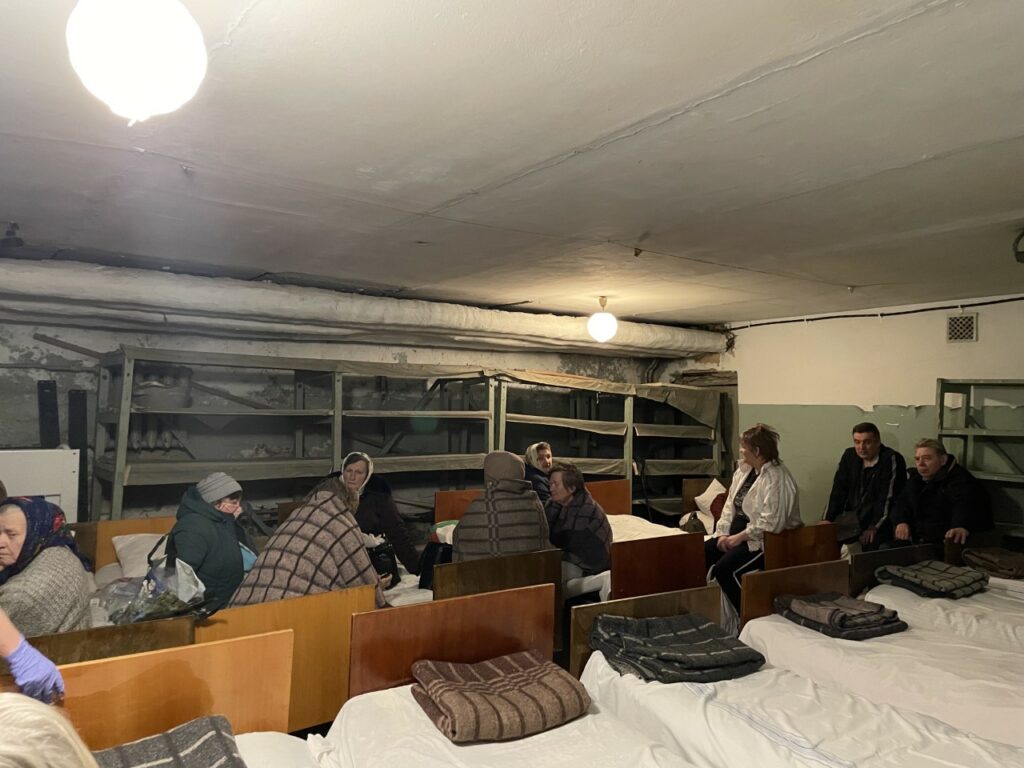The World Health Organisation on Thursday called for a safe corridor to deliver medical supplies to health care workers and people in need in war-torn Ukraine.
The WHO's Director-General Dr Tedros Adhanom Ghebreyesus said that the organisation is working with its partners to assess and respond to the impact of the conflict on the health of Ukraine’s people and its health system, and to deliver essential medical supplies from a warehouse in Dubai.
“WHO is deeply concerned about the unfolding humanitarian emergency in Ukraine,” Ghebreyesus said at a virtual press conference on Wednesday. He shared pictures of medical deliveries for the country, stating a safe corridor is needed to bring them to the people in need.
The first shipment of medical supplies arrived on Thursday at Warsaw airport, Poland, for delivery to Ukraine. The supplies will be moved into trucks to the border with Ukraine, and then further, to support the health system in Ukraine.
The shipment included 36 metric tonnes of supplies for trauma care and emergency surgery to meet the needs of 1,000 patients. Other health supplies will meet the needs of 150,000 people.
Attacks on health care system
Dr Mike Ryan, Executive Director, WHO Health Emergencies Programme, explained that WHO does not want to be drawn into politics but this does not mean that it does not condemn attacks against civilians.
“We are used to working in conflict zones around the world to help people. The fighting needs to be stopped.” He called on both sides, in particular Russia, to reconsider their positions. Until now, the WHO has not spoken to Russia but hopes to do it soon, Ghebreyesus admitted.
“We are also deeply concerned about reports of attacks on health facilities and health workers,” he added.
Related News
- What Russia's invasion means for the European Union
- EU approves automatic protection for Ukrainian war refugees
The WHO has received several unconfirmed reports of attacks on hospitals and health infrastructure, and one confirmed incident last week, in which a hospital came under heavy weapons attack, killing four people and injuring ten, including six health workers.
It is currently in the process of verifying several other incidents. “The sanctity and neutrality of health care – including of health workers, patients, supplies, transport and facilities – and the right to safe access to care, must be respected and protected,” Ghebreyesus underlined. “Attacks on health care are in violation of international humanitarian law.”
Salt in the wound
Prior to the conflict, Ukraine had experienced a surge of cases of COVID-19. Low rates of testing since the start of the conflict means there is likely to be a significant undetected transmission. Coupled with low vaccination coverage, this increases the risk of large numbers of people developing severe diseases.
In particular, critical shortages of oxygen has an impact on the ability to treat patients with COVID-19 and many other conditions. At least three major oxygen plants in Ukraine have now closed. An estimated 2,000 people currently need oxygen to survive. WHO is seeking ways of accessing oxygen from neighbouring countries and ways to deliver it safely to where it is needed.
In a briefing in mid-February, when Russia already had finalised its preparations for an invasion of Ukraine, WHO/Europe drew the attention to the east of the WHO European Region, where cases of COVID-19 had more than doubled in among others Russia and Ukraine. In Ukraine, less than 40% of those aged over 60 had completed their COVID-19 vaccine series.
The vaccination coverage varies by region, from 65 % in Kyiv to only 20 % in the two breakaway regions (Donbas). Before the war, WHO had planned to visit hundreds of villages to vaccinate elderly people (65+) but this would now require safe corridors. Otherwise, essential health care cannot be provided.
Mass population movements are likely to contribute further to the transmission of COVID-19, potentially increasing pressure on health systems in neighbouring countries. By now, more than 1 million people have fled to neighbouring EU member states and other countries.
UN fears that the number of refugees fleeing the war might increase to up to 5 million people. The current situation, which WHO describes as an unfolding humanitarian emergency, can easily deteriorate into a humanitarian disaster if no immediate cease-fire is agreed upon.
M. Apelblat
The Brussels Times

